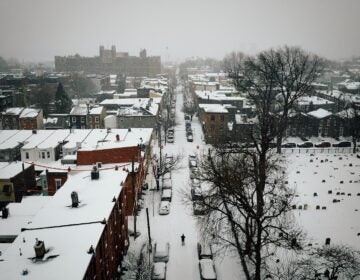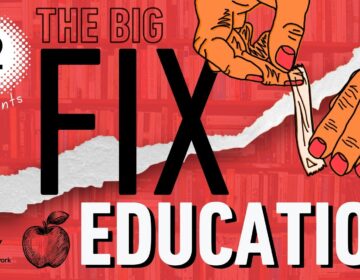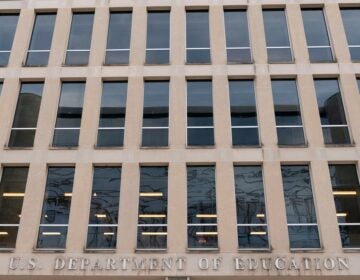Fighting for inadequate: a summer of false starts, bluffs and political theatre in Philly school funding
ListenSince last spring, Philadelphia school district leaders have been sounding the alarm about this year’s fiscal plight, but even after months of handwringing and headlines, schools have opened with less resources than last year.
Here, we take a look back on a summer of false starts, bluffs and political theatre.
Above, you can view a timeline of the summer’s milestones – with links to archived articles – and also listen to a piece that allows the major players in the funding debate to tell the story in their own voices.
A more detailed accounting
On March 28th the School Reform Commission adopted a lump sum budget. It showed a need for an additional $220 million in revenue in order to provide schools with same resources as the “wholly insufficient” 2013-14 school year.
By April 26th, that need had been refined to $216 million as Superintendent Hite warned of an “empty shell” scenario where schools would be unsafe for students to attend.
With classes now into thier third week, the district has balanced its budget with a mix of gains, hopes and cuts:
Gains
$120 in projected revenue from the city’s decision to make permanent the city’s 8 percent sales tax rate.
$30 million from the city’s decision to borrow against future sales tax proceeds.*
$12 million from Gov. Corbett’s “Ready To Learn” block grant (Corbett initially proposed $29 million but the legislature reduced the figure in budget negotiations).
Hopes
$49 million from the projected Philadelphia cigarette tax proceeds. (Pending approval by the legislature and governor).
$18 million from sales of unused district properties.* (The district is currently in negotiations with buyers for 13 buildings that would cover this amount).
$2 million from the hope that lower prices can be negotiated with some of the district’s vendors.
$3.5 million from the hope that the state department of education will stop making payments to charters for students enrolled above agreed-to caps.
Adding to $72.5 million, If these hoped for monies do not materialize, the district will be forced to make additional cuts. Without cigarette-tax revenue, classroom resources would be stripped to untenable levels.
Cuts**
$5.5 million from the district’s special-education budget
$2.2 million from reductions to the district’s multiple pathways to graduation program. (Affects 300 students).
$1.5 million from the elimination of preparation and professional development time for teachers at the district’s high needs promise academies.
$9.6 million from the district’s building maintenance budget. Schools will be cleaned less frequently. Building maintenance will be curtailed.
$2.4 million from the district’s school police budget. School police officer vacancies will be left unfilled, leaving an additional 27 elementary schools to share an officer.
$800,000 from cuts to additional central office departmental positions. (20 layoffs).
*These items represent one-time funding boosts that will need to be refilled as the district plans for the 2015-2016 school year.
**The district hopes to restore some of these cuts by convincing the Philadelphia Federation of Teachers to agree to a concessionary contract. District leaders won’t disclose publicly how much savings they seek.
Altogether, these gains, hopes and cuts add to $256.5 million. This figure is $36.5 million higher than the district’s $216 million ask because of the added costs associated with staff separation costs.
In addition to the $216 million, Superintendent Hite has been asking for $224 million to implement his vision for student growth.
2013-14
Leading up to the 2013-14 school year, the district said it needed $304 million to close its budget gap. In the end, it received only $112 million and was forced to cover the rest by depleting its savings and cutting thousands of positions.
Of this $112 million, the large majority was one-time funding:
$50 million from a loan from the city.
$45 million from the federal government’s decision to forgive Pennsylvania for a debt owed to the department of health and human services.
The remaining recurring funding for the 2013-14 school year:
$15 million from increases to the city’s delinquent tax collections.
$2 million from a boost in the state in basic education line.
WHYY is your source for fact-based, in-depth journalism and information. As a nonprofit organization, we rely on financial support from readers like you. Please give today.





